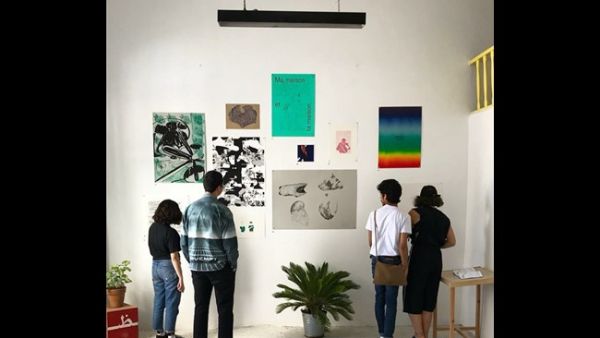When eight cultural institutions from around the region met in November for the Arab Fund for Arts and Culture’s Arts and Culture Entrepreneurship program, the participants were searching for new funding opportunities but coming up short. The program, which seeks to address the challenges of self-sustainability in an area where funding for the arts is dwindling, recently reunited the platforms for their second workshop.
The real question, however, in a time of endless seminars and conferences trying to teach something new, is did it actually work? Was the information given in the first workshop useful enough to be implemented?
Since November, the groups have undergone mentorship with New York-based independent cultural adviser Moukhtar Kocache and participated in the second workshop.
Last week saw Robert Wolfe from the Amsterdam-based THNK Academy try to offer tools of more alternative, practical thinking when tackling problems specific to the region’s institutions.
“My first observation is that there’s an interesting interplay between structure and free flow creativity,” Wolfe explained to The Daily Star.
“There is so much passion and comfort with being creative, which means being comfortable with the unknown.” The talks Wolfe gave all centered around the idea of Design Thinking, the technique of taking how designers think and reapplying it elsewhere.
“Let’s say a designer is going to design a chair. They will watch 20 people sit down on a chair ... and have a very user-centric view,” he explained. “Artists do something like this naturally but when they start building an organization they don’t ... apply this in a structured way.
“No one needs to tell them how to make art but when it comes to the organization they go ‘oh now we can’t be creative anymore,’” he added, “but actually you can apply that same creativity to your structure by knowing when to apply it.”
Egyptian art house cinema Zawya Cinemas and Distribution’s Ahmed Sobky intends to get the whole team brainstorming with this new information, combined with their plans following their mentorship session.
“We had our yearly retreat, to get away from the office for three days and come up with new ideas, review the year,” Sobky told The Daily Star. “A lot of things we discussed in the first workshop, we then looked at how to implement them after the retreat and Moukhtar came to play around with things, new tools to help with budgeting etc.
“We’ve been running more and more with our new space,” he added, “which we opened in December, getting into the groove and playing around with the programing.”
Zawya has not yet attracted new sponsors but Sobky says its early days and the new space is sustaining itself well.
Lebanon’s Minwal Theater Company co-founder Jad Hakawati set tasks to be completed between the two workshops, such as solving administrative issues, which has left them with a confident outlook.
“Before we were holding everything like it was glass and we were afraid to drop it, but now things are more solid so we’re going to test out where we’re failing,” Hakawati shared with The Daily Star.
“What we took from the first workshop was to get our minds going, and now we’ve started using it practically to help us continue organically,” he added.
The eight platforms will gather once more this summer and each will receive a grant of $25,000 upon completing the program. Previously, participant’s plans for the grant were non-existent. Now it seems an idea has formed.
“The money is going to be an investment for Minwal to get double and triple outcome and to work on reaching a wider audience,” he said. “It will also help to keep this startup on its feet and to be a fall-back if we’re ever going through a rough patch, until we find our rhythm.
“It will be for the intuitional fund, rather than be for a project,” he added, “used for our websites, for meetings in and out of Lebanon, fundraising dinners etc.”
Amina Mourid, co-founder of visual arts production house Atelier Kissaria, is similarly armed with a clear direction after their mentorship. “The way we manage our organization is completely different, it was a real turning point,” Mourid shared. “We started to think about ourselves as an institution than about our individual projects. Now we’re working about promoting the institution.
“We were in the process of managing a big grant which we received just after the first workshop ... so we know what will happen for the next year,” she added. “Everyone can get paid and it gives you more space to think about the strategy for the next two to three years and to come up with something long term.
“We’ve planned out the next three years with Moukhtar and we’ve started a new seven month project,” she beamed, “so we’re definitely growing.”
The real proof of the pudding will be in the coming years, long after the program has been completed. In the meantime, the participants seem to have developed optimistically and say they have started to lay the groundwork for solid sustainability.
This article has been adapted from its original source.








